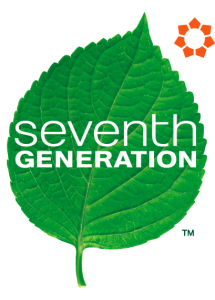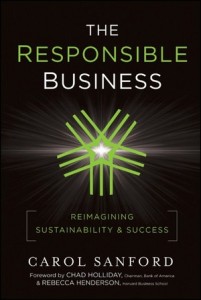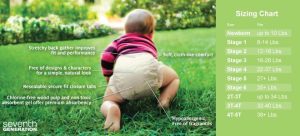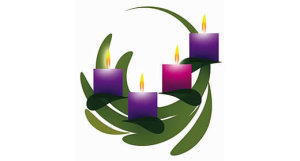Seventh Generation. A “Responsible Business.”

 This is a very interesting young company IMO. Seventh Generation is known for its green household and personal care products. Fact is that for St. Margaret’s Eco-Friendly Household Cleaning Products blueprint, developed by members of the church’s Environmental Missions Committee, it’s among select cleaner product manufacturers. Its Natural Handwash, Auto Dish Powder and Rinse Aid products are called out.
This is a very interesting young company IMO. Seventh Generation is known for its green household and personal care products. Fact is that for St. Margaret’s Eco-Friendly Household Cleaning Products blueprint, developed by members of the church’s Environmental Missions Committee, it’s among select cleaner product manufacturers. Its Natural Handwash, Auto Dish Powder and Rinse Aid products are called out.
From the Seventh Generation website, it’s stated mission is: “To Inspire a consumer revolution that nurtures the health of the next seven generations.” Aiming for products that make a difference, the company declares: “We believe with each new product we make, we must also build new ways of caring for ourselves, and the world around us.” It aspires to nurture nature, transform commerce, enhance health and build communities.” The last of these, build communities, lays claim to advancing social justice and equality to unleash human potential.
 What’s brought this company to my attention again recently is the book The Responsible Business by Carol Sanford (pub. 2011). Sanford is a global business consultant who’s worked with the likes of E. I. DuPont, Colgate-Polmolive, Kingsford,…and Seventh Generation. The thrust of her work is in helping to create what she calls Responsible Businesses. Over many decades, she’s developed a “pentad,” a dynamic framework for businesses working in a systemic way with all of its stakeholders.
What’s brought this company to my attention again recently is the book The Responsible Business by Carol Sanford (pub. 2011). Sanford is a global business consultant who’s worked with the likes of E. I. DuPont, Colgate-Polmolive, Kingsford,…and Seventh Generation. The thrust of her work is in helping to create what she calls Responsible Businesses. Over many decades, she’s developed a “pentad,” a dynamic framework for businesses working in a systemic way with all of its stakeholders.
Her pentad can be drawn as a 5-cornered star of critical characteristics of a Responsible Business. Corner #1 belongs to the Customer. Corner #2: co-creators. Corner #3 belongs to Earth. Corner #4- Community. And, Corner #5 belongs to Investors. Co-creators, you wonder? That terms refers to all people and organizations, from raw material suppliers to employees/contractors, who contribute to the conjuring and making of products or services. Earth? For Sanford, and the many household-name businesses she’s worked with, it’s a critical stakeholder as its the original source and base infrastructure from which all human activity begins. (Here’s her book’s website, if you’re interested in knowing more about what’s lacking in most business models/conduct, and about other businesses that have gotten it right.)
In “Part One, The Responsible Business: Reimaging Businesses of the Future,” Sanford describes Seventh Generation as a business founded on the idea that it “ought to be able to do well by doing good.” Sounds simple. Even slogan-like. Begun “as a catalog company offering toxin-free household and personal care products, it soon found its standards compromised by its manufacturers.” So, it spun off the catalog business while creating a new company mission. Founder Jeffrey Hollander’s vision became to take control of the formulation of products with high potential for toxicity, switching out the toxic ingredients for eco-friendly but effective ingredients, then letting companies such as Safeway, Giant and amazon sell these ecologically benign products to consumers. Oh, and yes, you can buy directly from the company at its website.
Yet, there are problems in Seventh Generation’s pentad, such as the use of nonrenewable fuels to ship both materials and final products, and packaging likely to wind up in landfills. But, an example of solutions it’s found in support of regenerative work is the elimination of synthetic fragrances in favor of organic essential oils. And, some of its products are purely fragrance-free which was among objectives in finding products for the St. Margaret’s household cleaner strategies.
Sanford says of the switch to essential oils: “These are healthier for customers and workers. But [the company] also wanted to go beyond being ‘nonharmful’ and proactively ensure that the entire fragrance production process was beneficial. So they worked their way back to the growers, ensuring not only fair trade but also growing and distilling processes that produced healthy soil before they committed to buying and embedding a fragrance in a product. The program has been so successful–30 percent annual growth since 2009–that the company plans to spend the next few years extending it.”
“They have committed to answering the question, ‘How do we ensure that Earth is healthier as a result’ for every raw material that they purchase and develop.”
Now that’s regenerative! And Responsible!

You can support the regenerative pentad business model by selecting 7Gen products for home and work. Hey,check out its bobble! (Stocking stuffer?)


